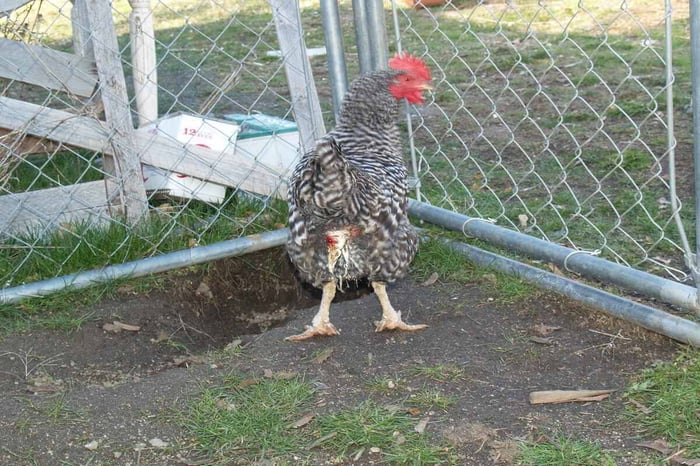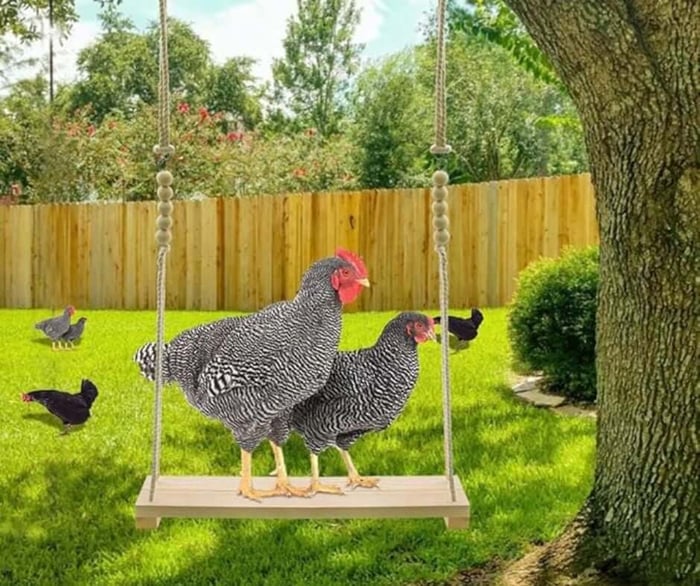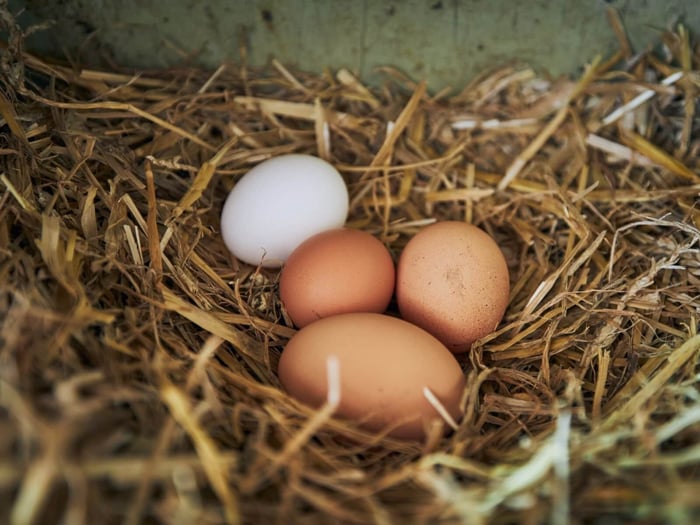Table of Contents
- Fourth of July Chicken Safety Tips: How to Handle Fireworks and Chickens
- Why Fireworks and Chickens Don’t Mix
- When to Start Preparing Your Chickens
- Fourth of July Chicken Safety Checklist
- 1. Try Calming Supplements or Herbs
- 2. Secure the Coop and Run
- 3. Give Them a Normal Evening Routine
- 4. Stay Away From the Coop During Fireworks
- 5. Post-Fireworks Monitoring
- Should You Keep Chickens Inside the House?
- Final Thoughts
- FAQs
 Fourth of July Chicken Safety Tips: How to Handle Fireworks and Chickens
Fourth of July Chicken Safety Tips: How to Handle Fireworks and Chickens
The Fourth of July brings food, fun, family—and fireworks. But while humans may enjoy the spectacle of bright lights and booming sounds, our chickens don’t share the same enthusiasm. For many backyard flock owners, the holiday can be a source of stress as hens become anxious, skittish, or even stop laying due to the unexpected noise. If you’ve ever wondered how fireworks and chickens mix (hint: not well), this guide will help you prepare your flock for a safer, calmer Fourth of July.
We’ll cover how fireworks affect chickens, warning signs of stress, and practical steps you can take before, during, and after the festivities to keep your birds comfortable. Whether you live in a quiet neighborhood or one that hosts backyard firework shows all week, these tips will help your flock weather the holiday with minimal disruption.
Why Fireworks and Chickens Don’t Mix
Chickens are prey animals by nature, hard-wired to respond quickly to loud noises and sudden flashes of light. Fireworks trigger their fight-or-flight response, causing them to panic, fly into coop walls, or crowd into corners where they risk injury.
Here’s how fireworks typically affect chickens:
Panic or flight response: Hens may flap violently, jump off roosts, or collide with each other or coop walls.
Stress-related behaviors: You might see decreased egg production, pacing, or refusal to go into the coop the next night.
Roosting disruption: Chickens may abandon the roost and pile in corners, leading to potential smothering or trampling injuries.
Predator vulnerability: A disoriented or startled flock may be more susceptible to predators, especially if coop doors or run fencing are unsecured.
Some chickens may adjust over time or be less bothered than others, but many will experience some level of stress during loud fireworks displays—especially if they’re not used to it.
When to Start Preparing Your Chickens
If you know your area celebrates the Fourth of July with fireworks, it’s best to start preparing your chickens a few days in advance. Many neighborhoods set off fireworks in the days leading up to and following the holiday, not just on July 4th.
Start checking your local events calendar and talking with neighbors to understand the likely dates and times of firework displays. Then, begin implementing safety and calming measures at least two to three days before the main event.
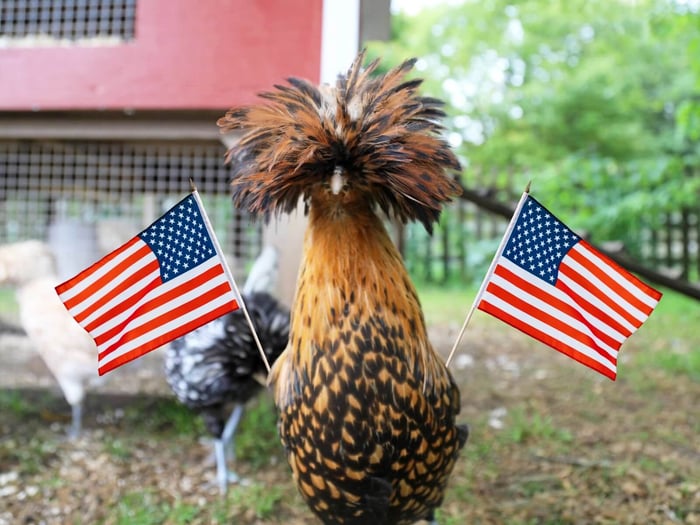 Fourth of July Chicken Safety Checklist
Fourth of July Chicken Safety Checklist
Use the following guide to help your flock feel safe and secure before, during, and after fireworks.
1. Try Calming Supplements or Herbs
Some chicken keepers choose to use natural calming aids in the days leading up to the Fourth. Options include:
Lavender: Sprinkle dried lavender in nesting boxes or hang fresh bundles in the coop.
Chamomile: Offer chamomile tea frozen into ice cubes or add chamomile flowers to their treat bowls.
Electrolytes and vitamins: Help support their immune system and stress recovery.
Check with your poultry vet before introducing any supplements to make sure they’re appropriate for your flock.
2. Secure the Coop and Run
Make sure your coop and run are completely secure. Even if your flock free-ranges during the day, it’s best to have them locked up in a solid coop by dusk on the Fourth of July (and surrounding nights).
Close all coop doors and vents where sudden flashes could be visible.
Check latches, locks, and fencing for weak spots.
Ensure there’s no way for predators to enter if your birds panic and create a commotion.
Provide low-level lighting inside the coop to reduce the contrast between the fireworks and the coop environment.
3. Give Them a Normal Evening Routine
A calm, predictable evening can help your chickens feel more settled before the noise begins:
Offer familiar treats like scrambled eggs or mealworms around dusk.
Keep your presence calm and confident when entering the coop.
Use soft talking or soothing background noise, such as a low-playing radio or white noise machine, to mask outside sounds.
Stick to their usual routine as much as possible—disruptions can make them more anxious.
4. Stay Away From the Coop During Fireworks
It may be tempting to check in, but avoid opening the coop or making sudden noises during peak firework activity. If chickens are startled and you open the coop, they may panic and fly out into the night.
Let them stay inside and self-regulate. Chickens instinctively seek safety in darkness and will usually huddle together in a corner or on their roosts. Checking in too often can actually cause more stress and confusion, especially if you’re using a flashlight or making noise near the coop.
Instead, wait until the noise dies down, then do a quiet post-fireworks check to ensure everything is safe and intact. Fireworks and chickens don’t mix well, but with minimal disruption and a calm environment, your flock can ride out the chaos more peacefully.
5. Post-Fireworks Monitoring
Once the fireworks subside, check on your chickens. Don’t shine bright lights into the coop—use a red bulb or flashlight cover if you need to observe without fully waking them.
Look for:
Birds huddled in corners instead of on the roost
Broken feathers or signs of injury
Unusual quietness or excessive vocalizing
Be prepared for a temporary dip in egg production or behavior changes for a few days. Most flocks bounce back quickly with routine and care.
Should You Keep Chickens Inside the House?
In extreme cases—such as very close, large fireworks shows—some keepers choose to bring smaller flocks or particularly sensitive birds inside a garage, basement, or barn for the evening. If you go this route:
Create a secure space with bedding, ventilation, and food/water
Keep them contained and away from household pets
Return them to the coop early the next morning
This isn’t necessary for most backyard flocks but may be an option if you’ve had serious problems with fireworks and chickens in the past.
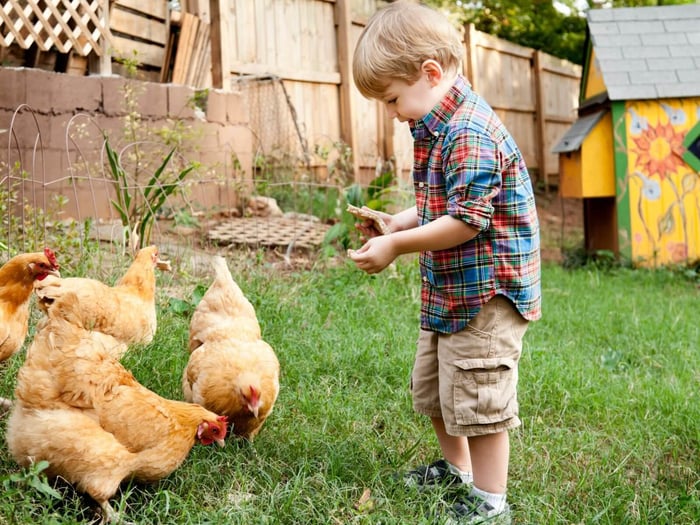 Final Thoughts
Final Thoughts
The Fourth of July doesn’t have to be a nightmare when it comes to fireworks and chickens. With a little preparation and thoughtful management, your flock can weather the fireworks safely and return to their usual routine quickly. Just like us, they appreciate the comforts of a familiar environment, a calm presence, and a secure shelter when the world outside gets a little too loud.
Whether you’re watching fireworks from your porch or helping your kids with sparklers in the yard, don’t forget to check in on your hens with some extra care this holiday. After all, keeping them calm and safe is the best kind of independence you can give.
FAQs
Do fireworks cause chickens to stop laying eggs?
Yes, stress from loud fireworks can cause hens to temporarily stop laying. This typically lasts a few days but can be longer for more sensitive birds.
2. Can chickens have a heart attack from fireworks?
While rare, extreme stress and panic can lead to shock or injury. Most chickens recover quickly with proper shelter and care, but it's important to prevent prolonged fear.
3. Should I bring my chickens inside during fireworks?
For most flocks, a secure and quiet coop is enough. However, if you live near a major fireworks show, bringing them into a garage or barn may offer better protection.
4. Do fireworks scare baby chicks more than adult chickens?
Yes. Chicks are more vulnerable and less equipped to handle loud noises. If you’re brooding chicks during July, keep them in a fully enclosed space far from noise.
5. What natural ways can I calm my chickens during fireworks?
Try lavender or chamomile, offer treats earlier in the day, and play white noise or soft music near the coop to help drown out sudden sounds.


